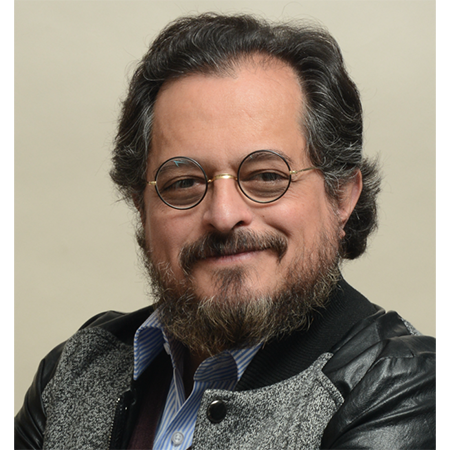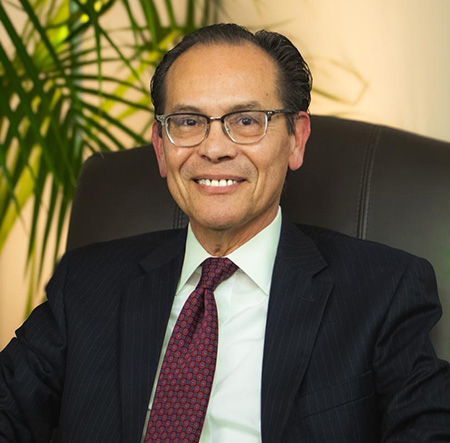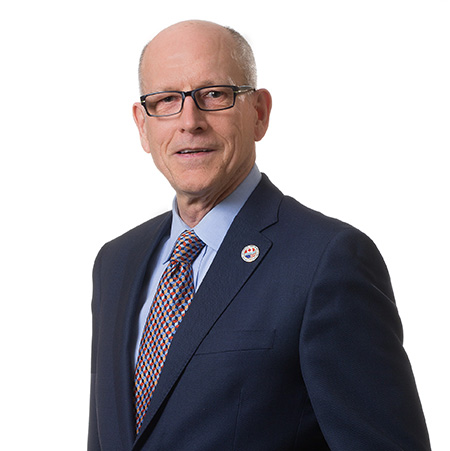Campus News
The Science Division announces recipients of Distinguished Alumni Awards
Dr. José de Jesús González, Dr. Maximiliano Mateo Cuevas, and Dr. Charles A. Lawson are this year’s Distinguished Alumni Award recipients for the Science Division.



Alumni of UC Santa Cruz’s Science Division shape the world. From spearheading groundbreaking astronomical research to championing comprehensive healthcare initiatives, and implementing meaningful policies, they leave an indelible legacy.
Each year, the Science Division presents both graduate and undergraduate alumni with Distinguished Alumni Awards, honoring those who have gone on to extraordinary accomplishments in diverse fields. The honorees bring enduring pride to their alma mater as practitioners and as citizens.
UCSC’s Science Division is proud to present the 2024 recipients of the Distinguished Alumni Awards: Dr. José de Jesús González, Dr. Maximiliano Mateo Cuevas, and Dr. Charles A. Lawson. González will receive the Distinguished Graduate Alumni Award, and Lawson and Cuevas will receive the Distinguished Undergraduate Alumni Award. The awards honor those whose careers are characterized by sustained and exemplary contributions to society through research, practice, education, policy, or service.
Science Division Dean Bryan Gaensler emphasizes the immense impact Lawson, González, and Cuevas have had in their respective fields.
“We are thrilled to recognize the outstanding contributions of these distinguished alumni,” Gaensler said. “Their remarkable accomplishments not only exemplify the values of our institution, but also inspire current and future generations. We take immense pride in their achievements and look forward to seeing the impact they continue to make in their respective fields.”
The awardees will be honored at the Science Division’s Distinguished Alumni Awards Ceremony on April 13.
Introducing the 2024 Awardees
Dr. José de Jesús González
Dr. José de Jesús González earned his master’s and doctor’s degrees in astronomy and astrophysics from UC Santa Cruz in 1984, following his undergraduate studies in physics at the Universidad Nacional Autónoma de México (UNAM). He currently serves as a professor and director of the Instituto de Astronomía at UNAM. His research focuses on the stellar content of galaxies and the development of astronomical instrumentation, and he has made notable contributions in determining stellar population gradients in elliptical galaxies.
With over 200 publications and extensive involvement in international research projects, González has contributed significantly to galaxy-evolution studies and to developing astronomical instrumentation. He has held leadership roles in various scientific organizations, represented UNAM on governing boards, and played a vital role in the modernization and expansion of telescope projects at the Observatorio Astronómico Nacional in San Pedro Mártir. Additionally, he is actively engaged in outreach activities, emphasizing the intersection of art and science and promoting scientific literacy across diverse sectors of Mexican society.
Dr. Maximiliano Mateo Cuevas
Dr. Maximiliano Mateo Cuevas embarked on his medical journey at UC Santa Cruz in 1973. His graduation with a B.S. in biology in 1977 eventually led to his specialization in obstetrics and gynecology. He earned his medical degree from UC San Francisco and underwent training at the UCLA and Kern Medical Center.
For the past 29 years, he has been the CEO of Clinica de Salud del Valle de Salinas, overseeing 13 clinic sites primarily serving farmworker families in Monterey County. Throughout his career, he has championed initiatives to provide comprehensive healthcare access, including establishing a women’s health program and spearheading the Doctors from Mexico Pilot Program, which employs culturally and linguistically competent physicians to serve non-English speaking patients.
Cuevas’s dedication to addressing healthcare disparities and improving community health outcomes reflects his upbringing and lifelong commitment to serving marginalized populations.
Dr. Charles A. Lawson
Dr. Charles A. Lawson was Secretary of the U.S. Section of the International Joint Commission for 12 years, overseeing the management and implementation of the Boundary Waters Treaty between the U.S. and Canada. In addition to managing the commission’s staff and budget, he played a crucial role in addressing transboundary water issues along the border.
Before his tenure at the commission, Lawson served in various diplomatic roles, including as Senior Advisor for Science and Technology in the Middle East peace negotiations and as a Special Assistant for Science and Technology to Ambassador Richard L. Armitage.
He began his career in scientific research before transitioning to diplomatic roles. He earned a B.S. in Earth sciences from UC Santa Cruz in 1973 and went on to earn a Ph.D.in geological sciences from Princeton University. Between 1982 to 1987, Lawson served as a research geologist and project chief at the U.S. Geological Survey in Reston, Va., and was a National Academy of Sciences/National Research Council Research Fellow at NASA’s Johnson Space Center in Houston.